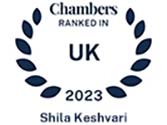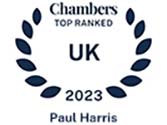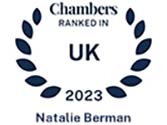THE CRISIS IN JUSTICE: WILL INDEPENDENT ADVOCATES FOR RAPE VICTIMS MAKE ANY DIFFERENCE? Paul Harris The new government have had their first party conference. And for those waiting for some clue about solving the justice crisis there was little other...
Almost half the police forces in Britain are refusing to identify suspects for fear of breaching their privacy human rights, it was reported this week.
The Daily Mail story prompted outcry — but no less than the recent naming of Lord Bramall and the late Sir Leon Brittan after their homes were raided over an alleged paedophile sex ring. In fact, they were not named by police: their names emerged through a jigsaw identification that linked arrest information and allegations in the public domain.
Yet tension is mounting in such cases. At present, police forces almost always refuse to confirm identities on arrest: their guidelines say no naming before charge — a move stemming from Lord Justice Leveson’s report in 2012 that approvingly cited police chiefs saying those arrested should not be identified.
Then last year the Commons home affairs select committee urged a change in the law to ban the media from naming suspects before charge. Names, the MPs said, should only be released for “policing reasons “ (such as a dangerous criminal on the run). Keith Vaz, the committee’s chairman, said: “It is inexcusable that information about suspects is released to the media in an informal, unattributed way . . . the police must advocate zero tolerance on leaking names of suspects to the press before charge.”
Now, with the Bramall and Brittan affair, there are renewed calls to give the ban statutory force. Lord Macdonald of River Glaven, former director of public prosecutions, says there is no need to change the law; it is for police practice. “I’m not in favour of the wholesale naming of suspects before charge (let alone arrest) because I think it can ruin innocent people’s lives to no good effect. But sometimes there’re operational reasons, where public safety is at stake, for naming individuals.”
In such cases, he adds, “it seems likely that a human rights argument against publicity is completely bogus. Too often public bodies cynically cite human rights as an obstruction, when what they’re really looking for is an excuse not to act in the first place.”
Similarly John Cooper, QC, a criminal silk, believes suspects’ names should not be publicised until after the CPS has considered if the evidence passes the thresholds for prosecution. “Before that stage the police have mere suspicion which is often, upon careful analysis, unfounded.” Yet he adds: “Open justice demands public information and the withholding of defendant details post charge would be an unwelcome step towards a ‘secret courts’ approach to public justice.”
Matthew Scott, a criminal barrister of Pump Court Chambers, agrees on anonymity before charge and “thereafter, probably not. It’s a bit of a balancing act but I think it’s better to have openness post charge; after all, if there is a charge, there will be generally be a trial at some point, at which the defendant will be named; so anonymity is going to be lost anyway”. And, he says, “sub judice” rules limit media speculation.
The problem, says Paul Harris, managing partner at Edward Fail Bradshaw & Waterson Solicitors, is police inconsistency. “It suits them to publish in certain matters such as Cliff Richard and the EastEnders actress murder but there are many cases where they rely on privacy/data protection to withheld names/details. They want to have their cake and eat it.” Suspects should, though, be granted anonymity before charge unless there are “overriding public policy considerations that override and trump privacy issues such as general protection of the public”.
Social media has also changed the game. Francis FitzGibbon, QC, of Doughty Street chambers and vice- chairman of the Criminal Bar Association, says: “Preserving the anonymity of suspects until charge strikes a fair balance between the right of innocent people not to have their names dragged through the mud, and the public’s right to be informed about police investigations. Being named can have serious long-term consequences even when no charges are brought, out of proportion to any public benefit from the name being released, because mud sticks and social media will find smoke when there’s no fire.”
Harris agrees: “The cornerstone of English justice is the presumption of innocence. In the past judges were often heard to say that today’s newspapers are tomorrow’s fish and chip papers but with the advent of the internet and social media there is a far greater risk that if you throw mud, it will stick and for much longer.”
So has social media killed off the age-old presumption of innocence and made a ban necessary? No, argues Mark Stephens, media partner at Howard Kennedy. A ban, he says, would be a step down a slippery slope to secret arrests and secret justice. “People can understand that someone is innocent under the law until presumed guilty. That is not to say people should be left on bail for months on end without charges brought. But we have an open justice system that presumes innocence until guilt is proven beyond reasonable doubt. It is vacuous to suggest that alleged murders, rapists, terrorists and child molesters should be able to hide behind the skirts of anonymity.”
Police forces of countries as diverse as Australia, New Zealand, India, Canada and the Caribbean “have not got themselves into the pickle that the British police have.” In the UK the police have been “vacillating”, tipping off the BBC when Sir Cliff Richard’s house was searched, which is “not acceptable”; but then closing up. “Naming suspects is very different from a ride-along. If celebrities are named on arrest, that’s part and parcel of being high-profile,” he adds. “It is unfortunate, but it’s part of the price we pay for having a proper balance between open justice and the presumption of innocence.”





